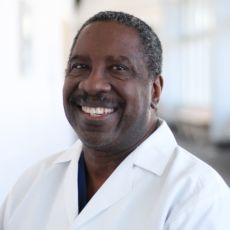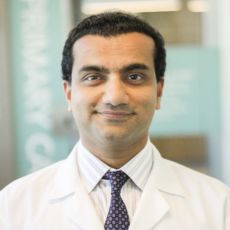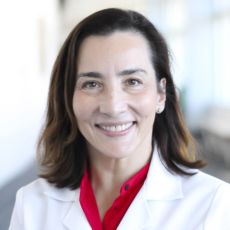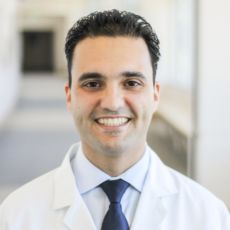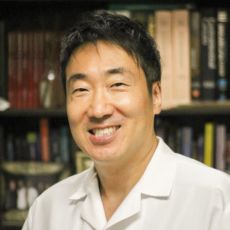Acid Reflux and
Indigestion / Heartburn (GERD)

Overview
Acid Reflux and Indigestion (GERD)
The terms heartburn, acid reflux and GERD are often used interchangeably but have different meanings.
Acid reflux is a common medical condition that can range from mild severity to serious. Gastroesophageal reflux disease (GERD) is the chronic more severe form of acid reflux. Heartburn is a symptom of acid reflux and GERD.
Heartburn is a burning pain in your chest, just behind the breastbone. Heartburn may typically worsen after eating, in the evening or when lying down or bending over. Occasional heartburn is common and is no cause for alarm, but persistent and progressive symptoms may require medical attention. Most people manage heartburn with lifestyle changes and over-the-counter medicines.
Gastroesophageal reflux disease (GERD) is when stomach acid frequently flows back into your esophagus and irritates the lining of the esophagus. Many people have acid reflux from time to time, but if lifestyle changes and over-the-counter medicines don’t work, you may need stronger medicine or surgery to ease symptoms
You should make an appointment with your Saint John’s Physician Partners doctor if you experience severe or frequent GERD symptoms or if you take over-the-counter medications for heartburn more than twice a week. GERD can seriously damage your esophagus or lead to precancerous changes in the esophagus called Barrett’s esophagus.
Symptyoms
Symptoms of GERD
Diagnosis
Acid Reflux and Indigestion (GERD) Diagnosis
Acid reflux and GERD can be typically diagnosed based on history and symptoms. However, additional tests that may be used in the aid of diagnosis include:
Upper Endoscopy
An Upper Endoscopy, or EGD, is when the doctor inserts a small tube with a camera through your mouth into the esophagus to see the lining of the esophagus and stomach.
Esophageal Manometry
An esophageal manometry is a test that helps diagnose acid reflux to assess your esophageal function. A narrow, flexible tube is inserted through your nose, through the esophagus and into your stomach.
Ambulatory Acid (pH) Probe Test
Ambulatory acid (pH) probe test is where a monitor is placed in your esophagus to see when and for how long, stomach acid regurgitates there.
Treatments
Acid Reflux and Indigestion (GERD) Treatments
Your doctor may recommend diet and lifestyle changes, including:
Dietary Changes
Certain food as above are known to increase the acid in the stomach leading to symptoms, thus avoidance of certain foods may improve symptoms without need for medication, examples which include:
- Alcoholic beverages
- Chocolate
- Coffee and caffeine
- Spicy foods
- Onions
- Citrus products
- Tomato products
- Peppermint
- Fatty or fried foods
- Carbonated beverages or caffeinated beverages
Lifestyle changes may include:
- Avoiding smoking
- Not wearing tight-fitting clothing
- Eating small meals instead of large ones
- Sitting upright for at least three hours after eating
- Also, if you are overweight, taking steps to reduce your weight can help with healthy eating habits and regular exercise.
Medications
Medications that may be available with or without prescription may include:
- Antacids that help neutralize stomach acid such as calcium carbonate (Tums ®)
- H-2-receptor antagonists can help reduce stomach acid but don’t act as quickly as antacids
- Proton pump inhibitors, such as Prevacid 24 hour, Nexium or Prilosec. These medications work longer than H2 blockers to reduce acid in stomach and also help heal the stomach lining.
Surgical Options
GERD can usually be managed and controlled well with medications and lifestyle changes, however if these don’t work or you are unable to take medications for an extended period of time, surgical options may be explored.
- Fundoplication is minimally invasive (laparoscopic) procedure where the surgeon wraps the top of your stomach around the lower esophageal sphincter, which tighten the muscle and prevent reflux
- LINX device is a ring of tiny magnetic beads wrapped around the junction of the stomach and esophagus. It works by magnetic attraction between the beads that is strong enough to keep the junction closed but weak enough to allow food to pass through. This is done through minimally invasive surgery.
- Transoral incisionless fundoplication (TIF) is procedure done through the mouth with an endoscope and requires no surgical incision. TIF involves tightening the lower esophageal sphincter by creating a partial wrap around the lower esophagus using polypropylene fasteners. The advantages of this procedure are quick recovery and high tolerance.
- The LINX and TIF procedures are newer techniques that may not currently be available in certain areas.
Specialists
GERD Specialists
Written and reviewed by: The Saint John’s Physician Partners medical and editorial team. We are a highly specialized team of medical professionals with extensive gastrointestinal disorder knowledge, expertise and writing experience.
Last updated: 01.27.2021
